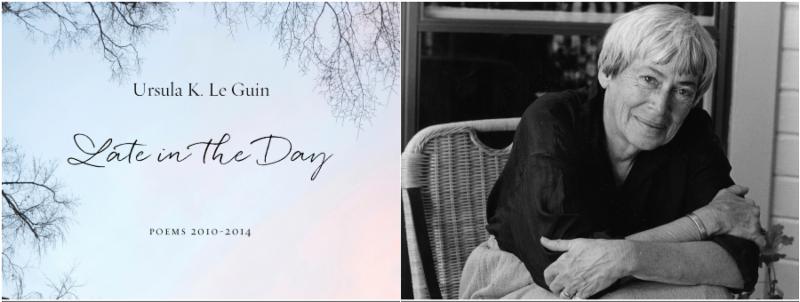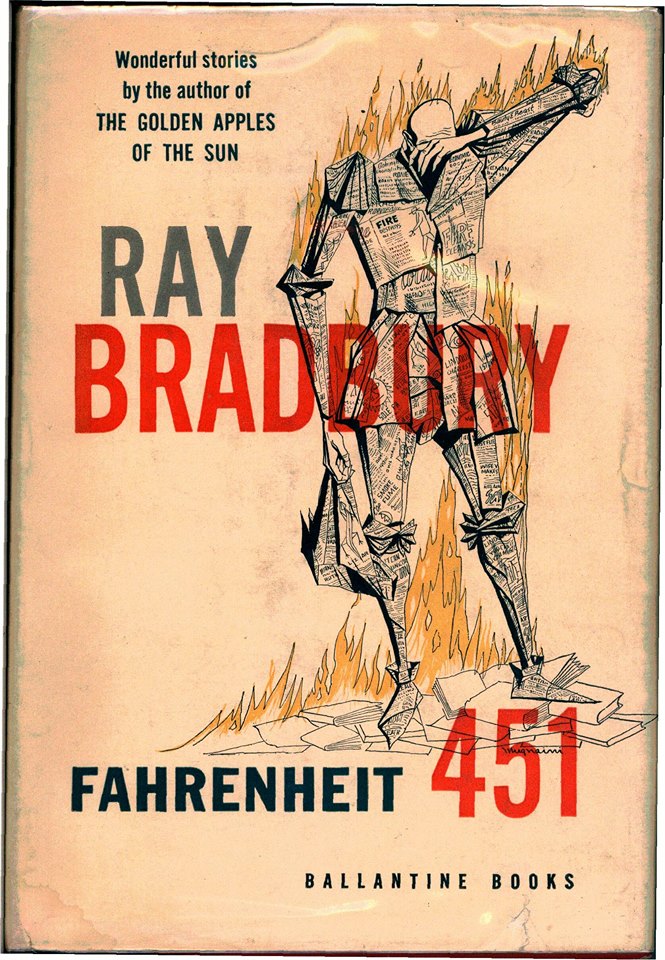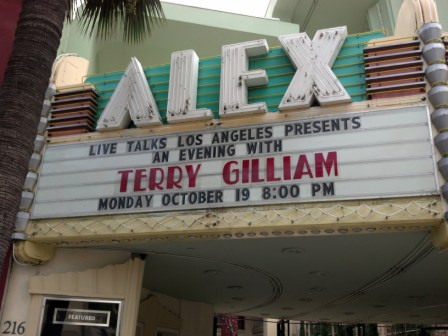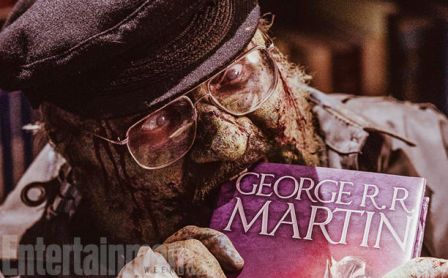I started this Scroll yesterday before taking off in my time machine, and have just kept on adding. While I don’t plan to divide the Hugo news from other Scroll topics very often, it makes sense to do it today.
(1) QUICK WHATEVER. John Scalzi’s “Quick 2016 Hugo Finalist Thoughts” from Whatever on April 26.
Thoughts on this year’s Hugo finalists (the list of which you can find here):
* First, as part of my new gig at the Los Angeles Times, I wrote an analysis of this year’s ballot there, so head on over there if you want to see it (Note it’s geared toward a general audience, so there a lot of explanatory stuff in there folks here will likely already know). As I’ve already written substantially on the Hugos there, what I write here will be brief.
* Overall, the nominations in several categories look pretty decent to me – Best Novel is particularly not bad at all! At least a couple of categories are a tiresome shitshow, however, thanks to the Puppies, again.
* Which we knew might happen again, remember? Fixing the slating issue was a two-year process. This is year two. Keep working on it, folks.
* The Puppies are once again trying to troll a bunch of people (the Best Related Category is one particularly obvious troll) and while I don’t mean to downplay the basic craptasticness of their actions, I’m finding it all that difficult to get worked up about it. I mean, I know the Puppies are hoping for outrage? Again? But as noted, we’ve seen this act before, and this time it’s just boring. Yes, yes, Puppies. You’re still sad little bigoted assholes screaming for attention. Got it, thanks.
Bear in mind I’m a direct target for their nonsense; at least two of the finalist works go after me in one way or another. I’m very specifically someone they’re trying to get worked up (and to tear down). And yet I just can’t manage it. I’m pretty much over the Puppies. There’s only so many times a toddler can throw a tantrum before you just shrug. You still have to clean up after the toddler, mind you. But you don’t have to let the toddler dictate the terms. Pity these particular toddlers are grown humans
(2) MAN OF HIS TIMES. John Scalzi’s first piece for the LA Times, “The Hugo finalists: John Scalzi on why the sad puppies can’t take credit for Neil Gaiman’s success”, posted April 26.
This year, once again, the two Puppy groups announced slates (or in the case of the “Sad” variant, a “recommendation list”) of people and works they wanted to see on the finalist ballot. Once again, many of their choices made the cut. But where last year’s slates were filled with nominees primarily of interest to the Puppies themselves, this year’s Puppy slates included works and authors already popular with science fiction fans and tastemakers, and (as a subset of both of these) Hugo voters.
Works the Puppy slates included that made the Hugo finalist list include the novel “Seveneves,” written by Neal Stephenson, a past Hugo best novel winner and multiple nominee; the graphic novel “The Sandman: Overture,” by Neil Gaiman, also a multiple Hugo winner; the novella “Penric’s Demon,” by Lois McMaster Bujold, who has won four best novel Hugos; and the film “The Martian,” a best picture Oscar nominee (and controversial best comedy Golden Globe winner).
The Puppies will no doubt be happy to take credit for the appearance of these works and others on the finalist list. But, as with “Guardians of the Galaxy” last year, their endorsement probably doesn’t count for much in the grand scheme of things.
(3) MORE ALFIES. George R.R. Martin saw the new season of Game of Thrones kick off, then rode off to his own dynastic wars – “The Puppy Wars Resume”.
The record turnout seemed to have no impact. Fandom nominated in huge numbers, but it would appear that they did not nominate the same things. They scattered their nominations among dozens, perhaps hundreds, of possible choices. We won’t know the full story till we see the complete list of nomination totals on Hugo night… but I suspect (unless MAC cuts the list short) that we’ll see many more titles than we’re used to.
The same thing happened to the Sad Puppies. By shifting from Torgersen’s slate to Paulk’s list of recommendations, they suffered the same fate as many other recommended reading lists, be it the LOCUS list or the Nebulas or my own recommendations. They had almost no impact on the ballot. The Sads did get works on the ballot when their choices overlapped with the Rabids, to be sure, but very few works that were “sad only” made the list. SP4 was a non-factor. (And before someone else points this out, let me be the first to admit that the Sads had more impact than I did. As near as I can tell, I batted .000 on my own recommendations, which just goes to show that all this talk of about my immense power is somewhat exaggerated. No wonder I never get invited to the meetings of the Secret Cabal).
The big winners were the Rabid Puppies, whose choices completely dominated the list…
One last point. The Rabids used a new tactic this year. They nominated legitimate, quality works in addition to the dross. Works by writers like Stephen King, Neil Gaiman, Neal Stephenson, Alastair Reynolds (Reynolds went public well before the nominations asking NOT to be slated, but they slated him anyway), Andy Weir, and several others. Some of these writers are apolitical (like Weir), while others are known to oppose everything that VD stands for (Gaiman, Stephenson, King). One has to think they were deliberately targeted.
In some of the online comments I’ve seen, these writers are being called “shields.” I’ve even read some people calling for them to withdraw, simply because they were on VD’s list.
Withdrawing is the LAST thing they should do.
I urge them all to stand their ground. They wrote good books, stories, graphic novels, they did NOT take part in any slate. In some cases they were largely unaware of all this. In other cases they explicitly denounced the slates ahead of time (Reynolds, again). Punishing them… demanding they turn down this honor… simply because VD listed them is insane….
(Oh… and yes, for those who were asking. This does mean we will need a second set of Alfies).

(4) SALADIN AHMED.
https://twitter.com/saladinahmed/status/725122354339270657
(5) RAY RADLEIN.
(6) ADVICE TO THE BOOKLORN. Tim Hall is swimming in the mainstream, in “Booky McBookface, by Noah Ward”.
I’m not a Worldcon member, but that’s not going to stop me giving unsolicited advice. So here’s my off-the-top-of-my-head recommendations.
First, ratify E Pluribus Hugo. This is ought to be such a no-brainer than anyone that attempts to argue otherwise is not to be trusted. It won’t fix everything, but it will make it harder for any well-organised minority to swamp the ballot.
Second, think very hard about the wisdom of repeating last year’s block no-awarding everything tainted, throwing good people under the bus in an attempt to preserve the purity of the awards. That stank when they did it to people like Toni Weisskopf last year. The garbage from VD’s cronies you can no award to oblivion if it’s as awful as it sounds from the titles. But remember that burning down The Hugos is VD’s goal, and no-awarding deserving nominees like Toni Weisskopf or Alastair Reynolds gives him what he wants.
Third, recognise that the Sad Puppies and the Rabid ones are very different things, and try to build bridges with the some of the first of those groups, or at least avoid rhetoric or behaviour that further deepens the divide with anyone who’s not an actual acolyte of Vox Day. The mass no-awarding of last year did not help in that regard.
(7) MORE GOOD ANSWERS TO WRONG QUESTIONS. Abigail Nussbaum responds with “The 2016 Hugo Awards: Thoughts on the Nominees”
… In most of the categories dominated by puppy choices, we still have an actual choice between nominees, not just a winner by default because everyone else on the ballot is terrible. Most importantly, this year’s Best Novel ballot is one that we can look at without cringing, with only one blatant puppy nominee. It may sound like I’m lowering the bar, but to me this is all a sign that things are settling down, and that in the future–and especially if the anti-slating measures adopted in last year’s business meeting are ratified–we’ll start seeing this award return to normal.
Of course, I’m leaving out one important point, which might cast a pall on this year’s more acceptable raft of nominees–the fact that most of them were puppy choices. In some cases, these were nominees that probably would have made it onto the ballot without the help of Vox Day and his ilk–things like Neal Stephenson’s Seveneves in Best Novel, The Sandman: Overture in Best Graphic Story, and Strange Horizons in Best Semiprozine. In other cases, the line is more fuzzy. Daniel Polansky’s The Builders, for example, was a plausible nominee in Best Novella, coming from the strong, well-publicized Tor Novellas line and garnering a great deal of praise, but did the puppies’ influence help to push it past equally plausible nominees like Elizabeth Hand’s Wylding Hall and Kai Ashante Wilson’s The Sorcerer of the Wildeeps? We won’t know for certain until the nominating stats are released after the Hugo ceremony (and perhaps not even then), and in the meantime this year’s ballot is a lot less clear-cut than last year’s.
To the puppies, this no doubt looks like a winning gambit. To those of us who are adults, it’s just more silliness. We are neither as stupid nor as rigid as they keep insisting that we are, and are perfectly capable of parsing these nuances. And if this year’s Best Novella shortlist is a lot less exciting than the one I had hoped for–and which I think had a good chance of coming about–well, that’s how I feel about the Hugo most years. I keep repeating this, but it really needs to be said again and again: despite the puppies’ ridiculous claims, the Hugo is not, and has never been, an elite or rarefied award. If the puppies’ main accomplishment this year is to have pushed middling but not-awful work onto the ballot over better, more deserving nominees, well, then they’re no different from the majority of Hugo voters….
(8) QUICK AND THE DEAD. Damien Walter also has a few quick “Thoughts on the 2016 Hugo Awards”.
H P Lovecraft somehow managed to get nominated for a 1941 Retro Hugo, despite having died in 1937. Clearly some supernatural forces were at work…or some petty racists voting in revenge after Lovecraft’s erasure as the face of the World Fantasy Awards for being…a petty racist.
(9) LOVE. Aaron Pound’s thorough analysis of the “2016 Hugo Award Finalists” is rounded off with a compelling conclusion:
Both of the Puppy campaigns were built on spite. Larry Correia has openly admitted that he started the Sad Puppy campaign out of spite. Throughout the existence of the Sad and Rabid Puppy campaigns, the barely suppressed rage of its adherents has been readily apparent, and in some cases (such as during Brad Torgersen’s not infrequent frothing meltdowns over the last year or so), the rage has been quite openly expressed. Because of this, the Pups will always fundamentally misunderstand actual fans, who love what they love not out of a desire to spite someone else, but out of actual love for the thing. In the end, the Pups will fail because they are founded on the false premise that they can change what people love about genre fiction by force.
(10) ALLUM BOKHARI. At Breitbart: “Sci-Fi’s Hugo Awards Swept by Anti-SJW Authors – Again!”
This year, the Sad and Rabid Puppies have done it again. Ten out of fifteen Hugo Award categories have been completely dominated by Puppy-endorsed nominees — double what the campaigns achieved in 2015. The Puppies have also secured three out of five nominations for Best Novel, three out of four nominations for Best Short-Form Dramatic Presentation, and three out of five nominations for Best Long-Form Editor.
In total, the Rabid Puppies swept six categories on their own, while a combination of Sad & Rabid puppy nominations swept a further four.
Some of the Rabid Puppies nominations this year — such as a My Little Pony episode for Best Short-Form Dramatic Presentation and a porn parody in Best Short Story — seem clearly intended as troll options, a demonstration of the Puppies’ power to exert their will on the awards.
(11) AGAINST VANDALISM. Kayleigh Ann at Bibliodaze offers “We Have Always Been Here &Y Always Will Be: On the Hugo Awards and Cultural Vandalism”.
…Science-fiction and fantasy will move forward. It will continue to evolve and tell amazing, strange, radical and highly political stories, as it has always done, and the Puppies will cheer false cries of victory regardless of the outcome of the Hugo Awards: Their choices winning will be a sign that the industry agrees with them, and another No Award sweep (which is my predicted outcome) will simply be proof that they’re downtrodden underdogs who stood up against “Outrage Culture”. The truth is that nobody wins in this scenario because we end up having to participate in their Us Versus Them mentality in order to show a sturdy opposition to their nonsense.
Eventually, they’ll be left behind as the voices who have always been there refuse to participate in their cultural smudging. This particular kind of vandalism hurts us all, but those voices who needed the amplification of the Hugos will suffer the most, so it’s up to the rest of us to ensure that doesn’t happen. They’ll be left behind, but they still need to be called out and condemned for the dangerous vandals that they are. Get out your wallets, your microphones and your pens. We’re not going anywhere. We’ll always be here.
(12) STEVEN POORE
(13) VOX POPOLI. Vox Day did a reaction roundup of his own, “Making the Hugos Great Again”.
Of course the Sad Puppies can’t take any credit for Neil Gaiman’s nomination. The Rabid Puppies were responsible! As for whether Gaiman would have been nominated without RP support, they like to claim that sort of thing, but we’ll have to wait and see what the numbers say. Given their past record of ignoring popular, bestselling works, that’s hardly a given. In any event, as we proved last year in Best Novel, even when we don’t control the category, we still have the ability to decide who will win and who will lose when the SJWs don’t No Award the category.
In other news, we have a runner! Tom Mays belatedly decided to go the way of Marko Kloos. Not the brightest move; the time for virtue-signaling is before the nominations are awarded. It’s no big deal, not everyone can take the heat, although I suspect Tom is simply more of a Sad Puppy who hasn’t woken up to the cultural war yet. I was more interested to see that Black Gate caved and decided to accept their nomination this year; John O’Neill is a smart guy, he knows perfectly well that the nomination is well-merited, he grasps the genetic fallacy, and I suspect he has come to terms with the fact that the Rabid Puppies are not going away any time soon.
(14) CHAOS MANOR. Jerry Pournelle posted a reaction to his nomination at Chaos Manor.
I seem to have been nominated for a Hugo. “Best Editor, Short Form”. The only work mentioned for the year 2015 is There Will Be War, Volume Ten” released in November. It is of course a continuation of the There Will Be War series which appeared in the 1980’s and early 90’s, of which the first four volumes were recreated with a new preface during 2015; the rest are scheduled to come out in the next couple of years. I’ve edited a lot of anthologies, starting with 2020 Vision in 1973 (I think it will come out in reprint with new a introduction and afterword’s by the surviving authors next year. I did a series of anthologies with Jim Baen that was pretty popular, and one-off anthologies like Black Holes and The Survival of Freedom, amounting to more than twenty over the years, but this is the first time anyone has ever nominated me for an editing Hugo – and actually the first time I ever thought of it myself.
When I first started in this racket, Best Editor Hugo usually meant one for the current editor of Analog or Galaxy. That spread around over the years, but it meant Editor in the sense of someone employed with the title of Editor, not a working writer who put together anthologies, sometimes for a lark.
I used to get Hugo nominations all the time in my early days, but I never won. My Black Holes story came close, but I lost to Niven’s “Hole Man”. Ursula LeGuin beat me for novella. There were others. Our collaborations routinely got nominated, but again usually came second, so at one point I was irked enough to say “Money will get you through times of no Hugo’s much better than Hugo’s will get you through times of no money,” and put whatever promotion efforts I had time for into afternoon and late night talk radio shows and stuff like that. Which worked for sales, but not for Hugo awards. I’m unlikely to get this one – I’m a good editor but that’s hardly my primary occupation – but I admit I’d like to. I was already going to Kansas City this August, so I’ll be there, but I doubt there’s much need to write a thank you speech.
(15) COUNT HER OUT. Rhiannon Thomas refuses to repeat last year’s experience — “The Hugos Turn Rabid” at Feminist Fiction.
So… what now? It’s hard to take seriously any award with Vox Day’s “SJWs Always Lie” on the ballot. And unlike last year, I’m not going to soldier through the crap to weigh up its merit. I’ll probably read most of the novels, and pick up the non-puppy nominated shorter works, along with the ones by big name writers, because I’ve found that the nomination lists can lead me to interesting reading I would have missed otherwise. It’s basically my job to read endless piles of YA, and this gives me a focussed reason to finally pick up those other recent books too. But do we have to pretend that “Safe Space as Rape Room” is something worthy of serious critical consideration? The Puppies howl out for attention, and they’d hate nothing more than if everyone just ignored them. So let’s just pretend that their troll nominations don’t exist.
Of course, this approach isn’t without casualties. It’s obvious to anyone with a passing knowledge of fantasy and sci-fi that Brandon Sanderson and Stephen King are worth checking out, slate or no. But smaller writers? Not so much. Thomas A. Mays has already withdrawn his Hugo-nominated short story from consideration because of the slates, turning what should have been a moment of pride and victory into heartbreak. If we take the “slate works don’t exist unless they obviously have merit” approach, innocent writers still building their career get dragged down into the muck too. At best, they don’t receive the consideration they deserve. At worst, they get linked to Vox Day in everyone’s minds. And unlike big-name writers, they don’t have enough of an established reputation to shrug it off. It might appear that they need to withdraw to save their reputation, even though the Hugo nomination should have been something that would build their reputation in the first place.
And that sucks. But I, at least, can’t take another year of reading through piles of offensive and poorly written crap in search of potential specks of gold that may have been lost in the mix.
(16) CHUCK WENDIG. It isn’t lost on Chuck Wendig that “We Have A Problem”.
Like I’ve said in the past:
Dinosaurs squawking at meteors. Shaking tiny, impotent arms at the sky. The Empire, wondering where the hot hell all these goddamn X-Wings came from. Shitheel harasser assholes wondering when the world stopped listening to them and their diaperbaby bleats.
The other side of me thinks this is something deeper, darker, a vein of bad mojo thrust through the whole of the culture. Sepsis, toxic shock, an infection in the blood resistant to antibiotics.
But then I look and I think how thirty years ago I didn’t know what transgender meant. How three years ago I didn’t know what genderqueer was, and now it’s in the dictionary. I think about how we’re maybe on the cusp of having our first woman president. I think too about how social media has made the assholes louder — but it’s also amplified the voices of the non-assholes, and how conversations happen, tough as they are, across an Internet that moves fast and furious with both enlightenment and ignorance. I don’t know where we are or what’s going to happen next, and I know that I ping-pong between feeling optimistic about tectonic change and pessimistic about what that change has wrought.
I also know that no matter what we can’t just sit idly by. We push back. We vote no award when shitbirds nest in our award categories. We stand by those who are harassed by the worst of our culture. We stop sheltering the monsters and start protecting the victims. We amplify voices. We close our mouths and try to listen more. We master the one-two-punch of empathy and logic. We try to be better and do better and demand better even when we ourselves are woefully imperfect. I speak to geeks and I speak to men when I say: we need to get our house in order.
We have a problem.
But I hope we also have solutions.
At the very least, let this be a call that we need to do better by those who need us. Out with the bullies. Out with the terrorists. Gone with the ticks. We find those ticks and we pluck ’em out. Then we burn them, toss them in the toilet, rain our piss upon their parasitic heads, and say bye-bye as we flush and fill the bowl with clean water once more.
(17) AGAINST NO AWARD. Eric Flint, in “BUT FOR WALES?”, argues against voting No Award.
Theodore Beale and the people who follow him are idiots. They are petty chiselers and pipsqueaks whose notion of “the righteous battle against leftist wickedness and social justice warriors” is to try to hijack a science fiction award.
A science fiction award? Meaning no disrespect to anyone who cares about the Hugos, but the very fact that Beale and his gaggle of co-conspirators think this is a serious way to wage political struggle should tip you off that they’re a bunch of clowns with delusions of grandeur.
So treat them that way. This time around—remember, it’s 2016, not 2015—don’t hyperventilate, don’t work yourself up into a frenzy, don’t overact. Just treat the nominations the same way you would in any other year. Ignore who nominated who because, first, it’s irrelevant; and secondly, if you do you will be falling for a hustle by an idiot like Beale—which makes you an even bigger idiot.
Is anyone who’s planning to vote for the Hugos so ignorant or so stupid that they really think authors like Neal Stephenson, Jim Butcher, Lois McMaster Bujold, Brandon Sanderson, Alastair Reynolds and Stephen King need a slimeball like Theodore Beale’s approval to get nominated for an award? Are they so ignorant or stupid that they think editors like Toni Weisskopf, artists like Larry Elmore and movie directors like Joss Whedon and Ridley Scott are in the same boat?
Grow the fuck up.
Just vote, that’s all. Take each category for what it is and vote for whatever or whoever you think is most entitled to the award this year. Do NOT use “No Award” unless you really think there’s no work or person nominated in a category who deserves it at all.
(18) YOU CAN ASK BUT WILL HE ANSWER? Chuck Tingle did a Reddit “Ask Me Anything” today — “I am Dr. Chuck Tingle, 2016 Hugo Awards nominee for my book Space Raptor Butt Invasion. AMA!” He did it in character, so although the Hugos are mentioned once or twice, it’s basically played as farce. If you squint real hard (which I’m sure he would approve) at his comment about Vox Day, it includes the phrase “scoundrels never win.” Someone read that quote on FB and ran out to order ribbons….
(19) THE OTHER TINGLE INTERVIEW. Chuck Tingle was more forthcoming about scoundrels to Lauren Sarner at Inverse.
Do you know about the Sad Puppies, a group of people who try to disrupt voting for the Hugo Awards every year?
Don’t know about any puppies but it’s BAD NEWS BEARS if you want to disrupt awards. That is a scoundrel tactic and probably part of Ted Cobbler’s devilman plan. Ted Cobbler is notorious devil and has been seen using dark magic to control puppies around the neighborhood. I do not support the devilman agenda but i think that Space Raptor Butt Invasion proves that LOVE IS REAL and no scoundrels can stop that. Especially not some dumb dogs.
(20) NOW ON SALE. Two overnight sensations. One is satire. At least.
(21) SUNIL PATEL. Sunil Patel is still figuring it out.
(22) FOUR MORE. John Scalzi illustrates “Four Things About the Hugos” with Chuck Tingle’s cover art at Whatever. But it’s not all fun and games.
Fourth off, one of the finalists for Best Short Story, Thomas May, who was on the Rabid Puppy slate, has left the ballot, for admirable reasons. All respect to him for a difficult decision. I don’t believe this should be a signal for folks to hint to other finalists that they should follow his example, for reasons I outline above, i.e., this year’s slates were filled with people and work the Puppies put in for their own strategic ends, and are essentially blameless for an association that is unintended and/or unwanted. If you’ve got a mind to pester people about this, please consider not. Let them do as they will, just as you do what you will when it comes time to vote.
Thanks.
Filers will agree it’s a damn shame he didn’t have a fifth point!
(23) THE CASUALTIES. Katherine Jay chimes in at Stompydragons.
I am angry for the people who got knocked off the ballot because of the RP tactics. I’m particularly frustrated for the Campbell candidates who will never have another shot at that award because they’re out of time. Andy Weird was an RP pick, and I’m pretty sure he would have made it on the ballot anyway, but there are still three RP picks who are on that list and probably wouldn’t have been otherwise. Three slots that are denied to great writers who may never get another shot, because someone is playing silly games with the system.
I’m frustrated that seeding the RP ballot with a small number of works that would have been nominated anyway adds new kinds of dilemmas for many voters. Angry that many good works got bumped by crap VD was pushing. If you need any proof that his campaign has nothing to do with which works he thinks are genuinely good, take a look at some of the titles he picked, or look at what he said about one of the novels he chose (Seveneves).
Last year, after a lot of consideration, I voted No Award to all the puppy-related picks because I couldn’t condone slate nominating tactics. I still can’t support them.
But this year, if I do that, I’m also punishing works and writers who would have been nominated anyway, and I can’t make myself do that. Hell, I can’t No Award something I nominated–Bujold’s novella, The Martian–because that also makes a mockery of the process.
(24) SHAMUS YOUNG.
https://twitter.com/shamusyoung/status/725167136658866176
(25) GREY GRIPES. Grey The Tick (Grey Carter) is the author of Hugo-nominated Erin Dies Alone.
Yet his collected tweets are uncomplimentary of Vox Day.
(26) PHIL SANDIFER. Phil Sandifer will fight them on the beaches, in the fields, he will never give up.
First, as predicted, the Sad Puppies were a non-entity. That’s a little tough to judge given their new “we’re just a recommendation list” sheen of pointlessness, but it’s notable that the most conspicuous omission from their list, The Fifth Season, got a nomination in best Novel, and that in Fan Artist, a category where they had four picks, three of which were not on the Rabid Puppies slate, none of theirs made it on. Indeed, at a glance I can’t find anything that’s on their list, wasn’t an obvious contender anyway, and made it. These were Vox Day’s Hugos, plain and simple.
Second, let’s not have any silliness about pretending that what was picked reflects any agenda other than Vox Day’s spite. He’s been unambiguous that his sole goal this year is to disrupt the Hugos, not even making an effort to pretend that he was picking works on merit or because there’s actually some body of quality sci-fi he thinks is being overlooked by the awards. His only goal was to ruin things. The nominees exist only for that purpose. They are political, yes. Avowedly so. But their politics does not have even the barest shred of a constructive project. This is fascism shorn of everything but violent brutality – political in the sense of an angry mob kicking a prone body.
And so once again, the course is clear: we must resist. With every tool we have, we must resist. The highest priority, of course, is passing E Pluribus Hugo, the repaired nomination system that will serve to prevent this from happening again. Also important is No Awarding.
[Thanks to John King Tarpinian, JJ, and Hampus Eckerman for some of these stories. Title credit goes to File 770 contributing editor of the day Fugue.]
















